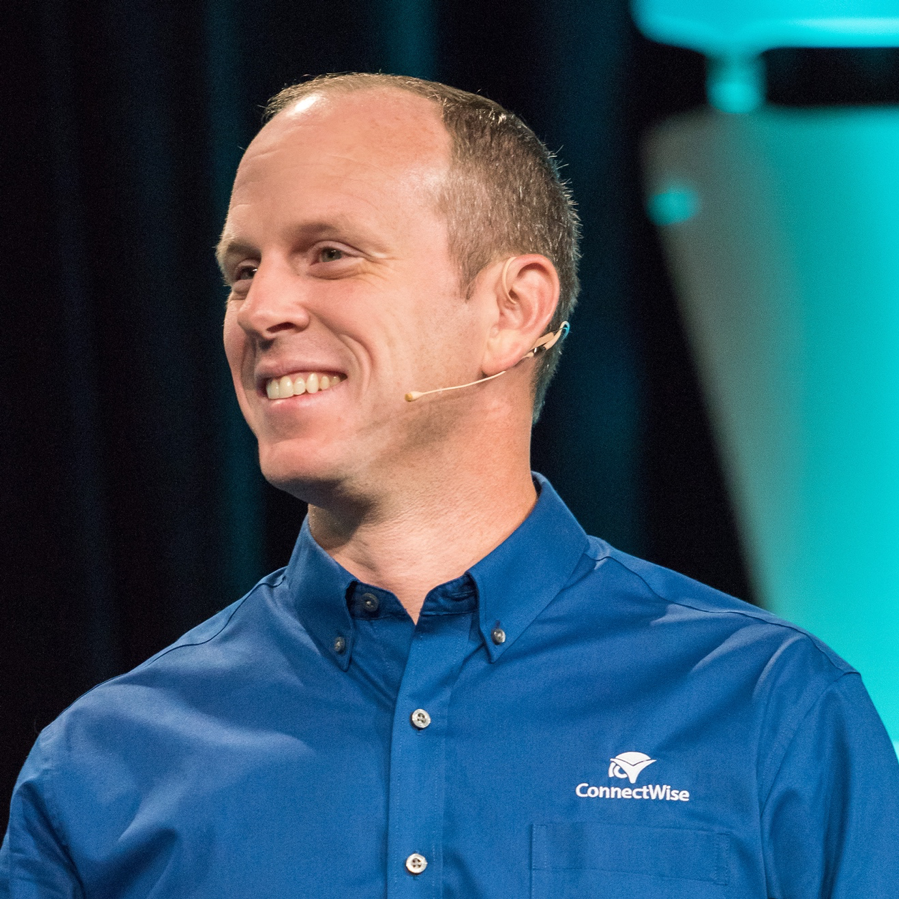by Craig Fulton, Chief Customer Officer, ConnectWise
Military training is designed to prepare soldiers for any battle they might face. As veterans transition into the civilian world, they may find it difficult translating lessons they have learned while serving into talking points for a hiring manager. Due to the different scenarios they faced during their tenure, former military members fit very well in the technology industry. Even if the candidate doesn’t have a history in IT or cybersecurity specifically, the ability to digest information and perform at a high level translates well into advancing and protecting the organizations they will serve.
Below, myself and five other veterans who now have successful careers in the technology industry provide advice for service members who are looking to make the transition into civilian life. Despite their different backgrounds and experiences across the different branches of the military, each expert found their way into the technology space. All of their testimonials further solidify just how transferable the skills attained through military service can be in the immersive world of technology.
Keith Buswell, senior sales engineer, Exabeam
“When I left the military in 2003, I was an F-16 jet mechanic, which has nothing to do with cybersecurity, but that didn’t stop me. From there, I became a firefighter and eventually found a niche in IT. My military experience may not directly correlate to my job now, but there are skills and lessons from the military that will endure for a lifetime, for example, punctuality. There’s an expression, ‘if you’re not 15 minutes early, you’re late.’ I live by that, and it serves me well, especially in sales, where response times are key and providing quality service or communication swiftly is critical.
If I had to give advice to my fellow veterans entering the workforce, it would be that you should never sell yourself short, but don’t be afraid to humble yourself. Put in that application and take a chance. You may have to start over or do something different than originally planned, but be confident in what you believe you can accomplish. There have been times where hiring managers saw I was former military, and even though I may not have been fully qualified, they knew I would not fail because of my work ethic and the military honors I had earned. Having a military background has never failed to open a door for me. If you don’t complain and focus on getting the job done, you can move up the ladder and find a fulfilling career that suits your skillset.”
Josh Johnston, sales engineer, Exabeam
“I personally came from an Army signals intelligence background, which had very translatable skill sets to the cybersecurity space.
During their time in the service, veterans have a job to do, and it has to get done no matter what. If a soldier doesn’t complete a task, there can be disastrous consequences to both the individual and the team. The Army also stresses and ingrains into new soldiers a unique approach to problem solving that often differs from what is normally seen in the civilian world by stressing and drilling: ‘backwards planning.’ Backwards planning involves identifying the end goal and outlining the steps it takes to get there, then executing the newly formed plan.
Exceptional problem solving, planning, and determination to complete assignments are skills also needed in the cybersecurity world. When security analysts are conducting an investigation, it can easily turn into a tedious slog. Analysts need dedication and the ability to get the job done quickly without a lot of complaining and pushback. Decisions need to be made, and then actions need to be executed quickly, often without all the desired information.
Veterans hold all the skills to conduct these investigations, and prior military experience translates well into the cybersecurity trade. For veterans looking to enter the field, my advice would be to take advantage of the free resources out there for you. SANs, Syracuse University and more all have programs available to those with prior military service. Conduct research to find out which program would be best suited to you and your interests and make the moves to make it happen.”
James Herbst, regional sales engineer, Exabeam
“I served as an infantryman in the Army for seven years, exiting the military and joining the technology workforce in 2013. If cybersecurity companies had come out to our base and showed me how my skills translated to their field when I was 25 and trying to see what I could do once out of the military, I would have made the transition a lot earlier. There’s a huge opportunity for companies to do so, and our nation’s security will be better served if we keep tapping into the military and the skills they can offer cybersecurity teams.
The biggest attribute that I’ve taken away from my time in the military is the ability to work well under pressure and not sweat the small things. Whether it’s a tight deadline, broken tool, or facing a breach, you have to put your head down and push through with determination and resolve. I’ve constantly heard that the biggest selling point on my resume is my dedication and work ethic – the ability to persevere no matter what. I’ve also been trained to work well in a team environment and collaborate, regardless of leadership level, which is needed in all aspects of cybersecurity from the SOC to sales.
I highly recommend veterans and those close to the end of their time in the military consider technology and cybersecurity. The skills you gather from being in the service will get you far, and there are organizations like VetsinTech, CompTIA and more willing to help you. Also, look out for free presentations offered by private sector companies and government contractors on these career paths–it’s a great preview of what life after the military could be like if you go in that direction.”
Brian Bledsoe, technical enablement manager, Exabeam
“In 2019, eight out of every 10 veterans who transitioned out of the military were expected to do so without a job or clear career path, according to VetsInTech. And in the midst of a pandemic that is greatly impacting the economy, they could be facing increased uncertainty. However, with remote work connectivity and security concerns also on the rise, working in technology and/or cybersecurity may be a promising option.
I have been out of the military for 22 years, following my service as a scout platoon leader in Louisiana. During my time in the field, I was able to garner experience around networking, setting up computers and managing databases. When it was time to find a civilian job, I turned to a headhunter that specializes in recruiting military personnel. They helped me land my first job in IT and software by helping me realize that it was okay if my experience didn’t translate 1:1 with the job description.
Veterans shouldn’t sell themselves short. We have attention to detail, discipline, accountability and a mission-focused mindset that make us valuable assets to any team in cybersecurity, technology and beyond. We can’t ignore the teamwork and leadership lessons we learn either, which help us become more effective, communicative and fair managers as we rise up the ranks.
My one piece of advice for those looking to make a similar transition: if you can’t get a job right away in security or another specific subset of technology, take an opportunity in software or IT that can help you build the base skills to get there. Once you’ve learned what you most enjoy and what you excel at, you can take steps to learn more about your desired niche and further your career.”
Dave Wisz, executive vice president, Operations, US Signal
“All too often, veterans sell themselves short when looking for civilian jobs, assuming because their qualifications don’t directly match what’s wanted on paper that they won’t have a chance. However, experience in any branch of the military provides a powerful skill set that helps them stand out. For instance, I served in the Air Force, where I was able to garner hands-on, in-depth experience in technology and IT through my work in voice and data communications and surveillance. At the time, I didn’t realize how valuable and marketable this technical background would be, but I also picked up significant soft skills that have served me well throughout my career, including integrity, devotion, team-work and a general hard-working attitude.
These apply to all military personnel because they are not afraid to push through challenges, are trained to understand the mission and work towards completing it and weave quality into everything they do. At US Signal, for example, we have dozens of former military employees that all show this dedication and eagerness to learn on a daily basis.
My top advice for veterans coming into the workforce is 1) don’t doubt yourself, and go for the job you want, 2) start preparing for this career change while you are still in the military to ease the transition. For those interested in pursuing a career in technology, IT or security, college computer science courses are an option, certifications and self-learning opportunities relative to your ideal niche can be found online and training resources are available through the military. I personally used my military training and self-studying to get into networking during the .com boom and grew my career from there.
My son is 4th-generation military, USAF, recently returning from supporting the ongoing missions in Afghanistan. My grandpa fought in World War I, my dad is a Korean War veteran, and I served during the Gulf Conflict. Before he decides his next steps, I’d tell him the same thing. ‘Look at your benefits and situation, and weigh that against your career options outside. If you are leaning toward leaving the military, then look to align your current training with the job you go for and take advantage of all the classes and courses the military offers now.’ Military veterans are an asset to any company, and they should be proud of all they accomplish during their service and beyond.”
As for me? I was raised in a small Ohio town where going directly into the military out of high school was a highly coveted option. I had one brother in the Air Force and one in the Coast Guard, and I knew that I wanted that same chance to see the world while learning and serving my country. So two weeks after graduation, I joined the Marines. After a lifetime of being interested in technology, I tailored my time in the service to develop those skills, eventually working in small computer systems. After five years, I realized that computer science was where my true passion lied, and I started taking courses and getting certifications until transitioning out into a job at Accenture that launched my career.
Even if you don’t focus on technology like I did, serving in the military provides valuable experience and skills that can make you incredibly marketable in the sector. You not only learn how to focus on an end goal using strategic planning and execution, you also learn how to adapt quickly to sudden changes. In high tech, many companies have lofty visions but don’t consider the steps required to reach them. Former military personnel can think about the outcome and help companies determine what it will take to get there. For instance, a large part of the military is defense and combat. You think: what are we trying to do? Overcome the enemy. What are we going to do to accomplish that? Step one, we land on the beach. Step two, we establish frontline defense. Step three, we move to offense. And just as importantly, you have to be able to improvise when plans change or fall apart. This way of thinking is highly valuable in all areas of business, but particularly the fast-paced, constantly changing tech field. Many veterans may find a very fulfilling career path here, even without technical background.
To break into the industry, consider working with recruiters that focus on working with veterans. They can help you determine which types of roles to pursue, translate your military skills to fit the position and find tech companies with strong support systems for veterans. This can help you transition more easily from one world into another. Once in the role, it’s important to utilize the team-oriented skills from your time serving to network across departments, which will help you learn the business and your specific purpose to help further its success. As you progress, you’ll very likely find the resilience, collaboration and leadership lessons learned in the military will help you move up through the ranks. And you will have earned it.
About the Author
 Craig Fulton, Chief Customer Officer, ConnectWise
Craig Fulton, Chief Customer Officer, ConnectWise
As Chief Customer Officer, Craig Fulton oversees the support, consulting and onboarding teams as a unified function to empower ConnectWise’s customers to succeed in growing their businesses and exceeding their goals. He credits his 20+ years in the technology sector, including time spent as a support desk and field technician, for helping him understand what partners want and need from their business management software.
The 12-year ConnectWise veteran has held a number of positions during his tenure with the company, including Chief Product Officer, senior product manager, business consultant, and system engineer. He also co-created ConnectWise CloudConsole and authoredPath to Success, a ConnectWise best practices guide about how to run a successful technology solutions provider business.Prior to joining the company, he worked for Accenture as a technology consultant, and served five years in the U.S. Marine Corps.
Craig is widely recognized for his contributions to the technology industry. He was named a Channel Partners Top Gun 51 channel executive in 2019, a CRN Channel Chief in 2015 and 2017, and a member of the MSPMentor 250 list in 2014. Craig also holds a number of patents related to chat program and cloud management technology. He earned his bachelor’s degree in business management from the University of South Florida.
The Ohio native now lives in Clearwater, Fla. with his wife Jillian and three sons. When he’s not at work, Craig is spending time with his family, traveling, or working on his cars.
Craig can be reached online at [email protected], on LinkedIn at https://www.linkedin.com/in/craigmfulton/and at his company website http://www.connectwise.com/..




